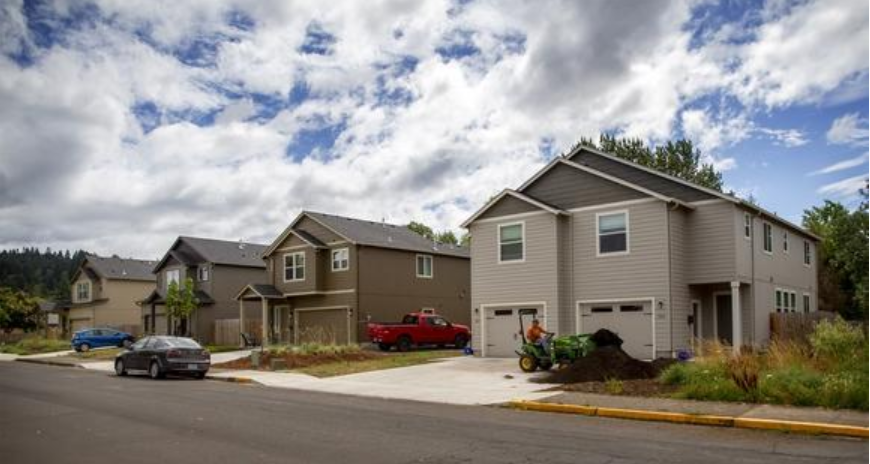Eugene's process to develop its middle housing code earns kudos from state

Eugene received an Achievement in Community Engagement award for the process city staff and officials used to develop middle housing code amendments.
The city used a "community-driven process" to develop local rules to comply with House Bill 2001, according to the Citizen Involvement Advisory Committee of the Oregon Department of Land Conservation and Development. The law, passed during the 2019 session, requires large cities to allow for development of diverse housing types such as duplexes and cottage clusters in historically exclusionary single-family zones.
Eugene and two other local governments won awards for making "innovative use of resources, build partnerships across and throughout the community" as well as efforts to "intentionally engage historically marginalized and underserved communities."
Though some in the community expressed ire over the process, the city used multiple avenues to engage citizens in the code-making process, including:
A partnership with Portland-based nonprofit Healthy Democracy to assemble a planning review panel of 29 community members who were representative of local demographics and randomly chosen by lottery. That panel met more than a dozen times and produced a list of guiding principles, two rounds of code recommendations and suggestions for future public engagement efforts
A roundtable that provided an equity lens for the project
Another roundtable including groups like Better Housing Together, the local chamber of commerce, 1000 Friends of Oregon and others to provide a community stakeholder lens
A third roundtable of representatives from various boards and commissions to provide a citywide policy lens
Two focus groups to get feedback on questions about development feasibility and the code changes
An online survey and social media
A story map to engage youth
Information sessions for the public
Printable materials to let people host their own meetings
Previous coverage:Eugene officials unanimously pass middle housing rules after months of community feedback
Eugene and the other two recipients "made great strides in establishing best practices and creating a body of local guidance that Oregon communities across the state can emulate,” said Leah Rausch, who chairs the committee that selected the award winners.
The city is "really proud" of the work on the project and "pleased that we were able to use inclusive and innovative public engagement tools," said Lindsay Selser, spokesperson for Eugene's planning and development department.
Selser said the review panel was the first of its kind used for a planning project in the state and maybe even the first in the country.
She also referenced the award nomination letter, in which Mayor Lucy Vinis described the plan for community engagement as "innovative, bringing in new methods but built on existing relationships and strategies rather than replacing them."
Vinis wrote the plan was focused on elevating voices of people who don't normally give input on public policies.
"(Staff's) outreach established context, explained local government procedures and provided background information to enable people without prior experience to participate fully," Vinis wrote.
She added the process set "a new bar."
Jose Melendez, who sat on the review panel, also contributed to the award nomination. Melendez wrote the process is “worthwhile celebrating to encourage other jurisdictions to take on such an innovative approach that requires commitment of resources, and as such, shows evidence of where their values are.”
Contact city government watchdog Megan Banta at mbanta@registerguard.com. Follow her on Twitter @MeganBanta_1.
This article originally appeared on Register-Guard: Eugene won an award for public engagement on middle housing

